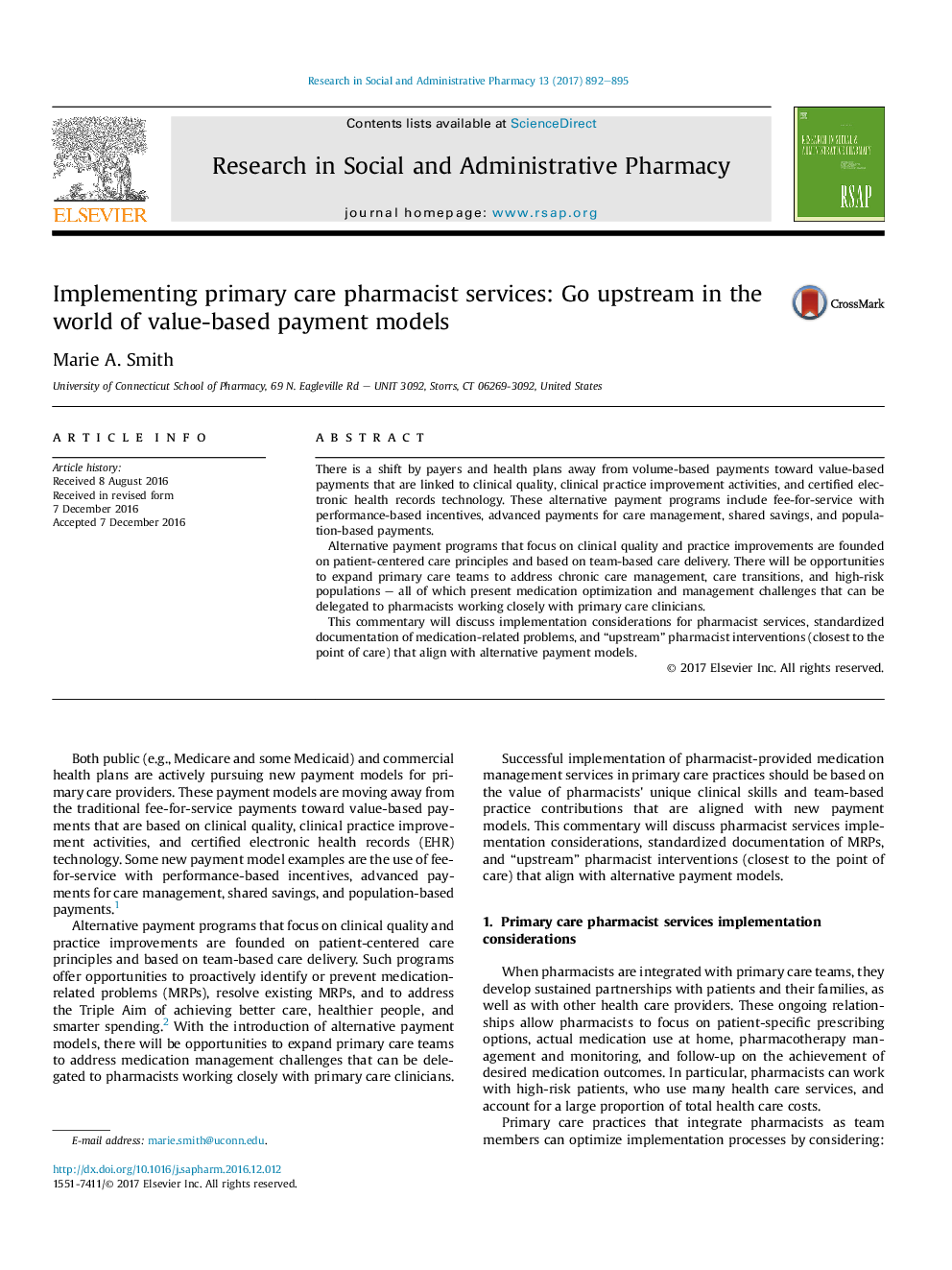| Article ID | Journal | Published Year | Pages | File Type |
|---|---|---|---|---|
| 5551163 | Research in Social and Administrative Pharmacy | 2017 | 4 Pages |
There is a shift by payers and health plans away from volume-based payments toward value-based payments that are linked to clinical quality, clinical practice improvement activities, and certified electronic health records technology. These alternative payment programs include fee-for-service with performance-based incentives, advanced payments for care management, shared savings, and population-based payments.Alternative payment programs that focus on clinical quality and practice improvements are founded on patient-centered care principles and based on team-based care delivery. There will be opportunities to expand primary care teams to address chronic care management, care transitions, and high-risk populations - all of which present medication optimization and management challenges that can be delegated to pharmacists working closely with primary care clinicians.This commentary will discuss implementation considerations for pharmacist services, standardized documentation of medication-related problems, and “upstream” pharmacist interventions (closest to the point of care) that align with alternative payment models.
